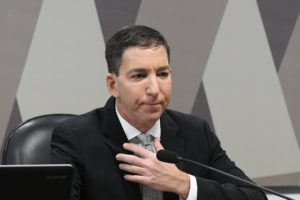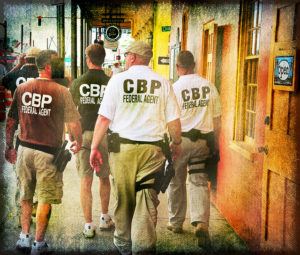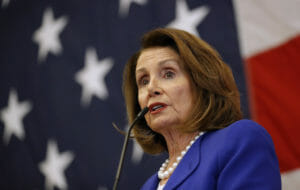Michael Moore Asks Americans to Stand Up to Obama, Back NDAA Suit
The filmmaker and liberal activist is taking a stand against President Obama's National Defense Authorization Act by supporting a lawsuit that seeks to change the "dangerous" measure, and he's urging others to do the same.
Michael Moore is taking a stand against President Obama’s National Defense Authorization Act by supporting a lawsuit that seeks to change the “dangerous” measure, and he’s urging others to do the same.
The filmmaker and liberal activist is arguing that the NDAA represents an effort by the White House to scrap “vital civil rights,” something he says all U.S. citizens should be concerned about. “At the moment a lot of people think the NDAA does not look scary. But this sort of thing never looks scary at the start. But the American people will rue the day if they do not stop this,” he told The Guardian.
He added, “[Obama] puts this face on it that makes it difficult. It was much easier when the face was Bush. We have to work and speak out against the Obama administration and everything they are doing to destroy civil liberties.”
Truthdig columnist Chris Hedges is among the group of journalists and activists that has sued the Obama administration over the NDAA.
The Guardian:
Moore was speaking after a court in New York heard an appeal in the case against the NDAA. Lawyers seeking to overturn the NDAA argued that it erodes American rights and free speech, and grants huge and unconstitutional powers to the government to suppress dissent and indefinitely detain people without going through proper legal channels. Lawyers for the Obama administration insist that the NDAA represents nothing new and has never been used in the ways that its critics suggest.
…the case brought against the NDAA is rapidly becoming a rallying cry for many civil liberties advocates, who see Obama as pursuing much of the same national security policy as his predecessor. “The major assault by the Bush administration has been embraced by the Obama administration,” said Hedges.
The NDAA case hinges on language that critics say is too vague. It grants the power of detention and the right to use force against anyone deemed to have “substantially supported” al-Qaida or the Taliban, or “associated forces that are engaged in hostilities against the United States or its coalition partners”. Critics say those terms are so broad that it, for example, include journalists or academics who interview Islamic militants or clerics. Or that the definition of terrorism might extend to those involved in projects like WikiLeaks or cyber-hacking groups like Anonymous or the Occupy protests.
For more of Truthdig’s coverage on the NDAA, including the lawsuit brought by Hedges and others, click here.— Posted by Tracy Bloom.
Your support matters…Independent journalism is under threat and overshadowed by heavily funded mainstream media.
You can help level the playing field. Become a member.
Your tax-deductible contribution keeps us digging beneath the headlines to give you thought-provoking, investigative reporting and analysis that unearths what's really happening- without compromise.
Give today to support our courageous, independent journalists.





You need to be a supporter to comment.
There are currently no responses to this article.
Be the first to respond.